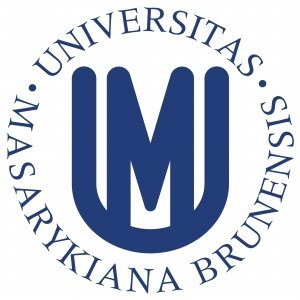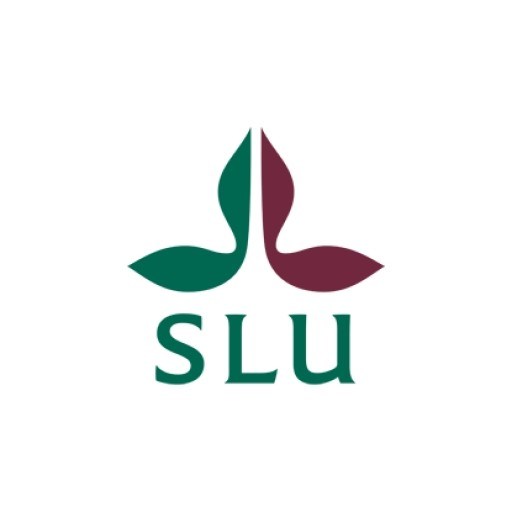Photos of university / #tu_berlin
Urban Management at Technische Universität Berlin offers a comprehensive and interdisciplinary education designed to equip students with the skills and knowledge necessary to shape sustainable, livable, and innovative urban environments. This program focuses on the complex interrelations between social, economic, environmental, and technical aspects of urban development, preparing future professionals to effectively manage the challenges faced by cities today and in the future. Students are introduced to core subjects such as urban planning, sustainable development, transportation systems, resource management, and digitalization in urban contexts. The curriculum emphasizes practical problem-solving through project work, case studies, and collaboration with industry partners, fostering a hands-on approach that bridges theory and practice. Participants will develop competencies in leadership, strategic thinking, data analysis, and communication, enabling them to coordinate multi-disciplinary teams and communicate effectively with stakeholders. The program also explores innovative concepts like smart cities, climate resilience, and social inclusion, ensuring graduates are well-versed in contemporary urban management challenges. Taught by expert faculty members with extensive research and professional experience, the degree provides opportunities for internships, research projects, and international exchange, aiming to cultivate globally oriented urban management professionals. Graduates will be qualified for careers in urban planning agencies, municipal administrations, consulting firms, and international organizations dedicated to urban development and sustainability. With its rigorous academic environment, strong industry connections, and commitment to innovation, the Urban Management program at TU Berlin prepares students for impactful leadership roles in shaping the cities of tomorrow.
Urban Management at Technische Universität Berlin offers a comprehensive and interdisciplinary education designed to prepare students for leadership roles in the development, planning, and management of urban environments. The programme focuses on equipping students with the necessary skills to address the complex challenges faced by modern cities, including sustainable development, infrastructural modernization, social inclusion, and environmental protection. Students will learn about spatial planning, urban policy making, and management strategies through a combination of theoretical knowledge and practical applications. The curriculum covers topics such as urban economics, transportation systems, environmental management, urban sociology, and digital innovation in city planning. Emphasis is placed on integrating technical, social, and political aspects to foster sustainable urban development. Collaborative projects, case studies, and internships enable students to gain real-world experience and develop problem-solving skills tailored to urban contexts. The programme also encourages critical thinking about the role of technology and data in managing urban growth and improving quality of life. Graduates will be prepared for careers in public administration, urban consultancy, real estate development, or research institutions. They will possess a deep understanding of the dynamics shaping cities and be able to develop innovative solutions for urban challenges. The programme fosters an international perspective, welcoming students from diverse backgrounds and preparing them to work in global and multicultural urban environments. Overall, the Urban Management programme at TU Berlin aims to develop forward-thinking professionals committed to shaping sustainable, efficient, and inclusive cities for the future.
Program requirements for the Urban Management Master's program at Technische Universität Berlin include a completed undergraduate degree in a relevant field such as urban planning, geography, architecture, civil engineering, or related disciplines. Applicants are expected to demonstrate proficiency in English, typically through standardized tests like TOEFL or IELTS, with minimum scores as specified in the application guidelines. A strong academic record is required, with particular emphasis on courses related to urban development, management, or policy. Work experience in urban management or related fields is considered advantageous but is not mandatory. Applicants should submit a letter of motivation outlining their interest in urban management and their career objectives, along with a curriculum vitae highlighting relevant academic and professional experiences. Letters of recommendation from previous professors or employers may be required to assess the applicant’s suitability for the program. The program also requires a formal application form completed via the university’s online portal, including transcripts, degree certificates, and language proficiency proof. Candidates may need to participate in an interview process or provide a portfolio demonstrating relevant projects or research. Specific prerequisites, such as familiarity with GIS software or urban planning tools, can improve admission prospects but are generally not mandatory. Additional documentation, such as a research proposal or an essay on current urban challenges, may be requested during the admission process. Prospective students should consult the official university website for detailed and updated application procedures and deadlines. Meeting these requirements ensures applicants have the foundational knowledge and skills necessary to succeed in the interdisciplinary field of urban management at TU Berlin.
The financing of the Urban Management program at Technische Universität Berlin is primarily based on a combination of public funding, tuition fees, and additional financial support options for students. As a public German university, TU Berlin benefits from governmental subsidies which help reduce the overall cost of education and ensure that high-quality teaching and research are sustainably funded. The program itself is generally offered with minimal or no tuition fees for European Union students, aligning with the German higher education system's emphasis on accessible education. Non-EU students may be subject to semester fees, which cover administrative costs and student services, typically ranging between 250 to 350 euros per semester.
Students may also have access to various financial aid opportunities, including scholarships, grants, and student loans. TU Berlin hosts a range of scholarship programs supported by the German Academic Exchange Service (DAAD) and other organizations that provide financial assistance to outstanding students or those with specific needs. Additionally, the university offers a variety of part-time work opportunities on-campus, enabling students to earn income while pursuing their studies.
International students, in particular, are encouraged to explore scholarship options and funding programs offered by their home countries or international organizations, which can support their studies at TU Berlin. The university also provides guidance and counseling services to help students navigate the financial aspects of their education. Furthermore, some students may access student loan programs available in Germany through various financial institutions, which often feature favorable interest rates and flexible repayment options.
Overall, the financing of the Urban Management program is designed to be accessible, with multiple pathways for students to fund their education, combining public support, institutional aid, third-party scholarships, and personal or family resources. The university's commitment to providing affordable education ensures that a broad range of students can participate in this program, fostering diversity and inclusion within the student body.
The Urban Management program at Technische Universität Berlin is a comprehensive master's degree designed to prepare students for leadership roles in urban development and management. The program aims to equip students with the skills necessary to analyze, plan, and implement sustainable urban projects that address the complex challenges faced by modern cities, including environmental sustainability, social cohesion, economic development, and governance. The curriculum combines theoretical foundations with practical applications, emphasizing interdisciplinary approaches and international perspectives. Students learn about urban planning, policy analysis, infrastructure management, and project development, often working on real-world case studies and collaborating with industry partners and city administrations. The program also encourages innovative thinking and the use of digital tools in urban management processes, reflecting current trends and technological advancements in the field. Graduates of the Urban Management program are prepared for careers in municipal governments, international organizations, consultancy firms, NGOs, and private sector companies involved in urban development projects. The program typically attracts students from diverse backgrounds, including architecture, civil engineering, political science, economics, and environmental studies, fostering a vibrant, multicultural learning environment. Courses are delivered through lectures, seminars, workshops, and field trips, with an emphasis on collaborative learning and practical problem-solving. The program may also include opportunities for internships, research projects, and participation in international conferences, providing students with valuable professional experiences and networks. Overall, the Urban Management program at TU Berlin seeks to develop capable professionals who can contribute to the sustainable and resilience-building efforts of urban areas worldwide, addressing the pressing challenges of global urbanization while promoting innovative solutions and inclusive development.










